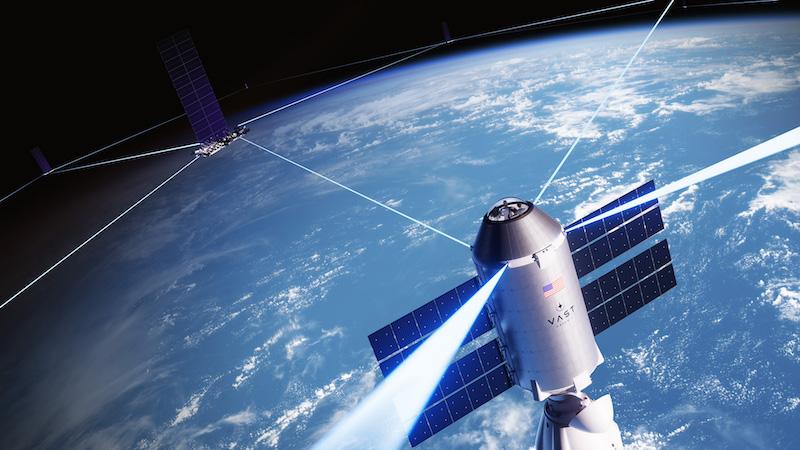
Starlink
COLORADO SPRINGS—Vast plans to integrate SpaceX’s Starlink laser communication system into its commercial space station, Haven-1, scheduled for launch in 2025.
The company appears to be the first announced customer of the Starlink laser communications terminal after SpaceX revealed in March that it would start selling the equipment to third parties.
The company expects to gain from Starlink at least 1 Gbps bandwidth with low latency for its crew, as well as the space station’s internal payloads, external cameras and instruments.
Many of SpaceX’s thousands of satellites in low Earth orbit (LEO) carry laser communications systems, making the company the world’s largest manufacturer of the equipment. Its Starlink constellation hosts more than 10,000 laser communications systems on orbit, the company said in March. Those lasers can sustain 100 Gbps connection per link, SpaceX engineer Travis Brashears said during a Jan. 30 presentation at a SPIE Photonics West event, PC Magazine reported.
SpaceX plans to roll out laser communications terminals on its Dragon capsule as part of the Polaris Dawn mission this summer. The private, five-day crewed mission to LEO will attempt the first commercial spacewalk and human health research.
Vast and SpaceX announced in May 2023 a plan to launch Haven-1 as soon as August 2025. The commercial station would feature the ability to spin and generate enough centripetal force to create the equivalent of gravity on the Moon. The space station would rely partially on the SpaceX Dragon capsule’s life-support system to sustain a crew for 30 days.
The Haven-1 crew will be able to connect their personal devices via Wi-Fi to the Starlink network and can use the internet for applications such as video calls to Earth, Vast says.
Vast says it also has an agreement with SpaceX to provide Starlink connectivity on future Vast space platforms beyond Haven-1, including the company’s next space station, which it plans to bid for NASA's commercial low-Earth-orbit destinations program competition.





